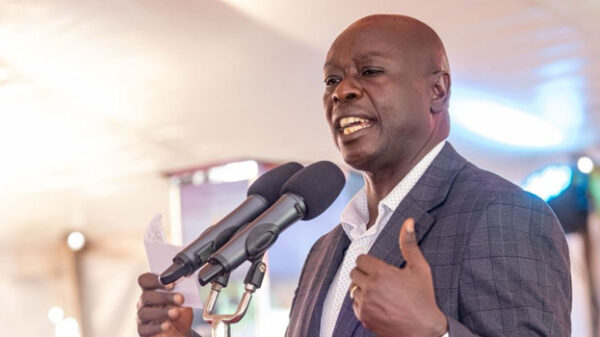That the media sector in Kenya, just like the rest of the industries and profession, is going through tremendous transformation and requires new innovative business models is no longer in question.
The changes are necessary and important; some will give the desired results of ensuring the industry survives including the effects of the COVID-19 pandemic but might be very costly management approaches to running a profession. Changes in the industry must happen but must be curated well, lest we remain with an industry that will not serve the public interest.
Such a highly sensitive industry cannot afford to employ a catch-up game and panic approach in management in the name of saving for profits. There are more tested and stable approaches to dealing with an industry in transformation, including dealing with declining revenues and crisis- least of them destabilizing their human resources pool, through mass sackings and retrenchments.
Content cannot be the king, when you have a skeleton and unstable workforce- getting off the newsrooms the most experienced and resourceful staff, will not help deal with the current need for more in-depth and well-sourced news that will make content the king as it were.
Discussion around the effects of the current disruption in the business models in the industry that saw for a long-time overreliance on advertisement revenue and especially from the government is very relevant. Media enterprises must relook at their business models, which a number are already doing, but need legal and policy support including making the global technology firms pay for content they get from the local media.
A number of players in the industry including the Media Council of Kenya, the Kenya Editors Guild and the Kenya Union of Journalists have proposed the establishment of a media diversity fund exclusive from the constrained government funding and managed by independent trustees in order to sustainably respond to funding and professionalism challenges and gaps affecting the media sector currently. In addition, there are calls for tax reforms on media equipment and payment of debts owed to the media and other players to ease the pressure on the establishments, as measures that will allow the industry play the national duty expected of it. This proposal has been opposed by some people on the position that such funding of the media from the taxpayers kitty will compromise media independence, a position I find not holding. Taxpayers funding of the media is not unique to Kenya, for its practice in many countries including Sweden, Canada among others- for freedom of expression and access to information are fundamental to human rights and national development.
It’s in public domain that the growth in the media sector has not seen relative development in terms of job creation, quality content, diversity and plurality in voices and both viability and sustainability. With the proliferation of digital media and citizen journalism, the old business model for sustainable media outlets has come into question in the 21st century. When media enterprises are self-sustaining – financially liberated from corrupt practices, government influence, or dependence on foreign non-governmental organizations– they will more likely to assert and maintain their editorial freedom and independence.
The media business is a very expensive investment and the operating environment must be made conducive to allow the sector not only play its central role in the democratic process, but business that makes returns.
With nearly 200 radio stations, 85 television stations, 100 print publications, and 200 online media outlets, the media industry in Kenya is a major contributor to the national economy and employer, thus should not just be looked at in terms of news reporting.
In addition to the costs of forming a community group and registering it, one requires Sh 700,000 on average to start a community radio station, Sh3 million for a small commercial station including costs of registering a company, acquiring broadcasting equipment and hiring staff, while an average Television station requires Sh10 million to start and operate annually in Kenya. The cost of, for example, content distribution for a national TV station with one channel is Sh300,000 per month, the cost of acquiring a license is Sh180,000 having been revised from Sh300,000 previously.
The cost of equipment installation for TV is nearly Sh5 million. For newspapers, in addition to the investment in equipment and staff, the Books and Newspaper Act requires that you deposit a bond. In addition, the media enterprises have to pay the other relevant national and county government loans and levies which have made the business an expensive affair. In addition, many of the media enterprises are still run as family entities shrouded in mysteries thus have not benefitted from advantages that come with registering with the Capital Markets Authority or related.
It is wrong for media managers to continue journalists looking as the reasons for the shrinking revenues for the industry. Studies have shown that companies lose the most valuable and experienced staff during such panicky interventions to deal with crises. The most independent-minded, versed, and experienced tend to leave when such turbulence is experienced by the sector but these are individuals who can get huge pensions, engage in their own start-ups or are likely to be employed by other firms.
Victor Bwire is the Deputy CEO and Head of Programs at the Media Council of Kenya.





















































